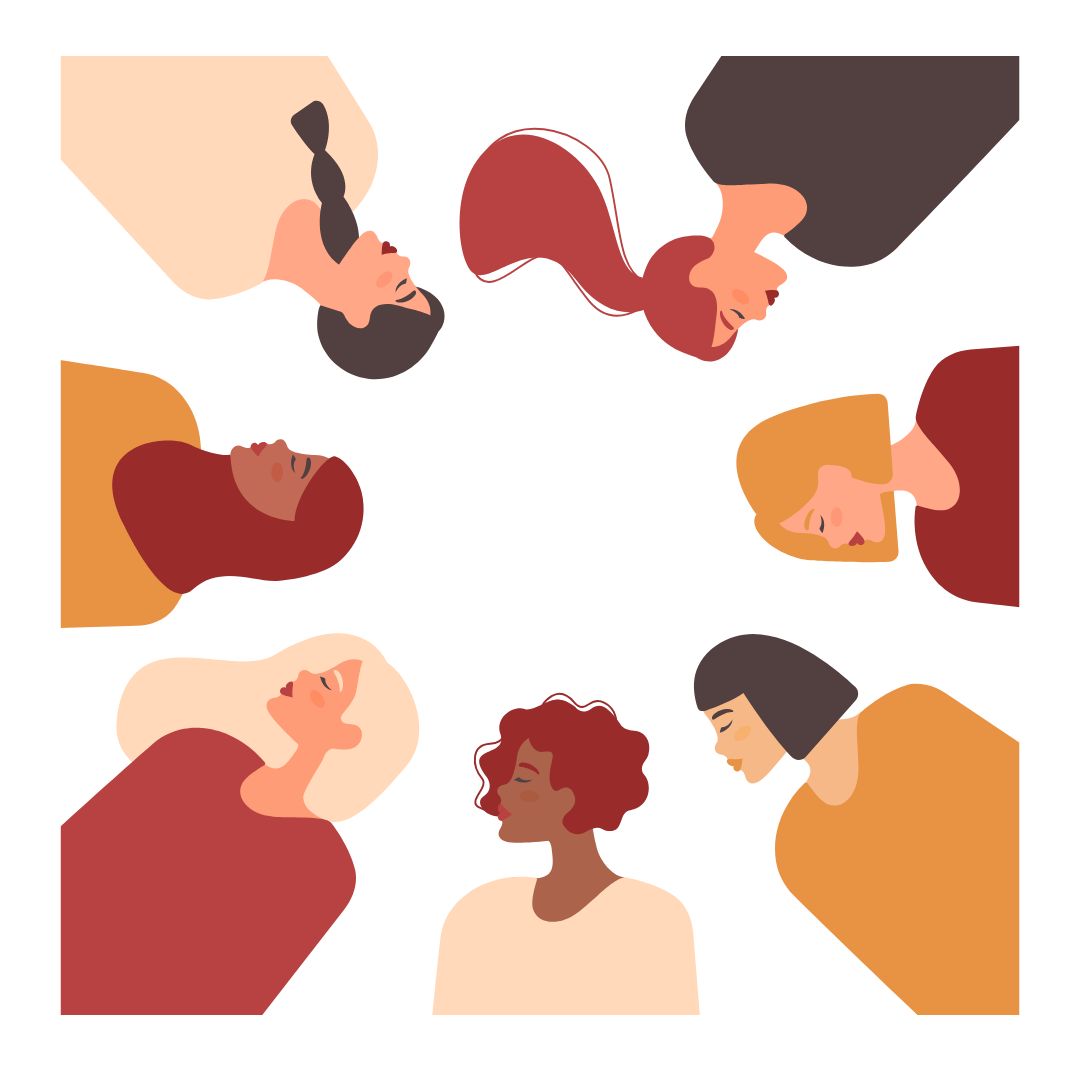
Sisters gotta stick together
Being picky is a good trait – you know what you want, and you don’t agree to settle for average.
But sometimes we are called picky while we are just being cautious. For us, women living in a men’s world, this is simply a way to survive.
“When I tell a man what precautions I use to avoid being attacked, he laughs at me. When I tell a woman, she adds one more safety measure from her experience”.
That’s the hard truth. And yet, there’s still no guarantee
that we don’t end up in an abusive relationship or become a predator’s target.
How many of these things have you or any of your female
friends done at least once in your life?
-
- Took a screenshot of a date’s profile from a dating app and sent it to a friend before going out for the
first time with him. - Shared your location with a friend when going on a date.
- Asked a friend to call you in the middle of a date to check if you’re ok.
- Bought a mace pepper spray for self-protection.
- Took a screenshot of a date’s profile from a dating app and sent it to a friend before going out for the
-
5. Faked a phone call with a male friend who “will meet you soon” when you heard someone following you in the
street.6. Shared your location while in a taxi and/or called your friend and clearly specified where you are now and
where you are going to make the driver understand someone will be searching for you if something happens. -
7. Smiled uncomfortably at a
harassing joke not to provoke a man’s anger.8. Made up a boyfriend to get rid of a man in a bar and not make him angry.
9. Waited for 10 minutes before turning on the lights in your apartment when you came back from a date so that the man wouldn’t figure out the number of your unit.
The list goes on and on. And it doesn’t guarantee anything.
We are blamed for being “paranoid” when we follow these (and many other) steps.
We are blamed for being “reckless” when we don’t.
But we are not responsible for other people’s actions. We are responsible only for our lives. And we have the right to be in control of it.
If you are experiencing any type of abusive behavior towards you, please, know that there are services and people that can help you.
For instance*:
Collapsible content
If you need to talk
Please, call the Assaulted Women’s Help Line
1-866-863-0511
If you need a shelter in Toronto
If you need information on available services
Please, call: 211
If outside of the 416 and 647 area call: 416-397-4636
or visit www.211toronto.ca
211 Toronto: A 24-hour information line about community, social, health and government services in Toronto. Free, confidential and available in many languages.
If you are not sure if you are in an abusive relationship
Please, connect with an intake worker.
The Barbra Schlifer Clinic has intake workers who can help you determine whether you are looking for counselling, legal services or both. They can also provide you with information about abuse and referrals to other services.
Please, call: 416-323-9149 x 234.
(You may have to leave a message. Please say your name and number clearly and tell them a time when they can call. Please tell them if it is safe to call you
back and safe to leave a message.)
Website: www.schliferclinic.com
If you are a teenager and need help
Please, call: 1-800-668-6868
or visit kidshelpphone.ca/Teens/home.aspx
Kids Help Phone: A 24-hour, confidential, free and anonymous helpline for kids and teens aged 20 and under for any issue.
Please, call : 416-925-9250
or visit www.turningpoint.ca/index.html
Turning Point Youth Services:
Located in Toronto’s downtown core, provides a range of mental health,
counselling and support services to at-risk and vulnerable youth aged 12-24,
and their families.
Please, take care of yourself. You deserve better. You deserve the best.
The suffering should not go on.
*The contact information source - https://womanact.ca/
